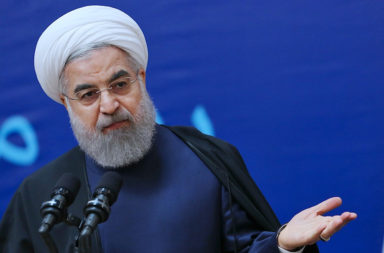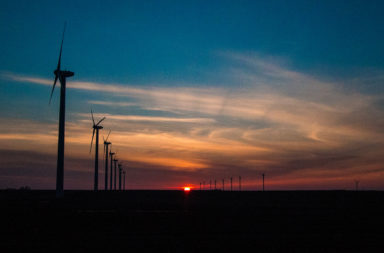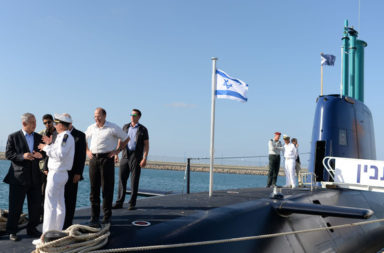US president-elect Donald Trump does not like the Iran deal made by the Obama administration.
Last week the US Senate voted to extend the Iran sanctions act for another 10 years. It passed 99-0 after clearing the House of Representatives in November. Barack Obama is expected to sign the measure into a law, a White House official said. The administration does not believe the extension violates the nuclear deal with Iran.
In his campaign, Mr Trump threatened to scrap this important and sensitive international agreement, which tries to contain the A-bomb development in Iran.
His advisor John Bolton wrote in the New York Post November 13, 2016:
“One key step would be to abrogate the Iran nuclear deal in his first days in office. There will be considerable diplomacy required to explain this courageous but necessary decision, but the unambiguous signal it would send worldwide cannot be underestimated.”
Trump is in line with right-wing Israel prime minister Netanyahu and with the Sunni states of Saudi Arabia and the Gulf.
Benjamin Netanyahu to discuss ‘bad’ Iran nuclear deal with Donald Trump https://t.co/vIhMB9YmtN
— The Guardian (@guardian) 4. Dezember 2016
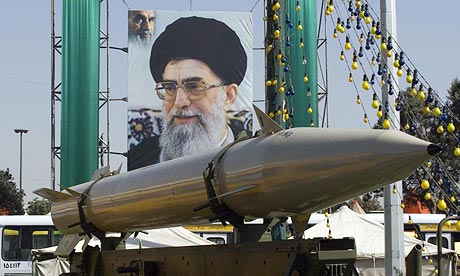
Should Trump in the White House cancel the historic agreement with Tehran?
Lets have a closer look:
Who was behind the Iran-deal and likes it: The U.N. nuclear watchdog agency IAEA, representatives of the EU, the UK, France, Germany, as well as the UN Security Council veto-members China and Russia. In other words: all allies, with the exception of Israel, and two dominant adversaries of the United States.
Are they all just naive and counterproductive, as Israel, with its very strong lobby in the United States, Saudi Arabia – the Sunni arch enemy of Shiite Iran – and the Republicans in the U.S. argue?
Will Trump follow Israel’s hard line?
What can be his master plan?
Let’s look into the facts of this complicated nuclear containment deal.
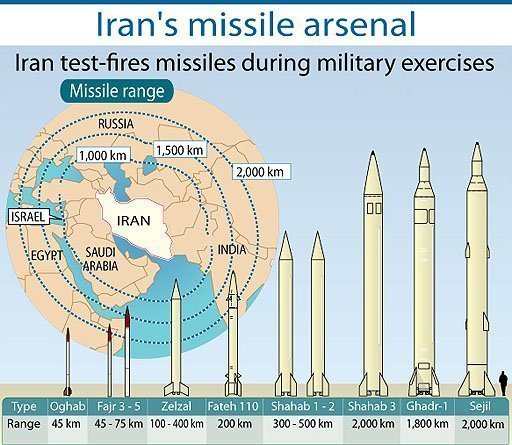
“Without an appropriate reaction to every violation, Iran will realise it can continue to develop nuclear weapons, destabilise the region and spread terror,” Benjamin Netanyahu said.
US Republican House Speaker Paul Ryan argued similarly, that the Obama administration had moved to lift economic sanctions “on the world’s leading state sponsor of terrorism”
Watch this Globalo clip from Hiroshima, to better understand what is at stake.
The International Atomic Energy Agency (IAEA) in Vienna released its report assessing Iran’s compliance with an agreement signed in summer 2015. Its Director General Yukiya Amano (picture above) declared on January 16, 2016:
“Today, I released a report confirming that Iran has completed the necessary preparatory steps to start the implementation of the Joint Comprehensive Plan of Action. The report was submitted to the IAEA Board of Governors and to the United Nations Security Council.
It was issued after agency inspectors on the ground verified that Iran has carried out all measures required under the JCPOA to enable Implementation Day to occur.
This paves the way for the IAEA to begin monitoring and verifying Iran’s nuclear commitments under the agreement, as requested by the U.N. Security Council and authorised by the IAEA Board.
Relations between Iran and the IAEA enter a new phase. It is an important day for the international community. I congratulate all those who helped make it a reality, especially the group of countries known as the E3/EU+3, Iran and the IAEA Board.
In line with its commitments, Iran will start to provisionally implement the additional protocol to its Safeguards Agreement with the IAEA. Together with other nuclear-related measures under the JCPOA, this increases the agency’s ability to monitor nuclear activities in Iran and to verify that they are peaceful.
We have come a long way since the IAEA first started considering the Iran nuclear issue in 2003. A lot of work has gone into getting us here, and implementation of this agreement will require a similar effort. For our part, we are ready to get on with the job.”
The EU and the United States lifted international economic sanctions, as “Iran has completed the necessary steps to restrict its nuclear program”.
President Barack Obama signed an executive order lifting some of the U.S. economic sanctions.
So what now? Well, the first steps are to permit Iran to sell its oil on world markets and buy new equipment. The banks can become re-connected to the global system and 100 billion dollars of frozen assets can be used.
“Implementation Day” is the formal name for the start of this new phase in the “Joint Comprehensive Plan of Action” (JCPOA) reached with Tehran in July 2015. It means a first wave of economic relief for Iran.
Some nuclear-related sanctions will stay the next up to ten years.
The deal and the inspections are complicated.
The agreement is an exchange. International sanctions are lifted step by step. Iran is obliged to take steps to put it further away from developing a nuclear weapon, while keeping a peaceful nuclear energy program. It must reduce its level of uranium enrichment, the size of the stockpile of enriched uranium, as well as the number of centrifuges. Iran has agreed to a system of international inspections.
What are the 4 positive elements to stop the Mullah-nukes?
Iran’s breakout time – the time it would take for Iran to gather enough fissile material to build a weapon — was just two to three months before the deal. Now it would take them 12 months or more. With 4 actions this was reached:
- Iran has shipped 25,000 pounds of enriched uranium out of the country since October 2015
- The country has removed and placed in monitored storage, two-thirds of its centrifuges and associated infrastructure.
- The core of Iran’s Arak Heavy Water Research Reactor was removed and filled with concrete, eliminating Iran’s potential source of weapons-grade plutonium.
- To block covert pathways, Iran has allowed the International Atomic Energy Agency (IAEA) unprecedented access to its nuclear facilities and supply chain. And for the first time, the IAEA will be using modern safeguard technologies in its monitoring and verification efforts in Iran.
A former director of an European intelligence agency, who was involved in several negotiations with Iran for many years, told Globalo:
“The plan is the best option the West has. In reality nobody could stop the bomb without an agreement, not even Israel. The deal and the conditions are more political, less a 100 percent safe guarantee. There is much hope involved as well.”
In essence, the Western partners have 12+ months time in case Iran leaves the peaceful path of arms control and starts again to go nuclear and hostile.
Other sources told Globalo:
“Saudi Arabia has signed a secret deal with Pakistan some years ago, with two billion dollars pre-payment involved. In case Tehran announced that it had the bomb, Riad would follow seven to twelve months later, claiming it was building its own nuclear arsenal. Pakistan would deliver ready-to-use bombs and know-how.”
Maybe even European Union Foreign Affairs Coordinator Federica Mogherini is right with her XXL-optimism: The economic sanctions against Iran were lifted now “that the country has joined the UK, United States, France, Germany, China and Russia in the field of peaceful users of nuclear energy.”
U.S. Secretary of State John Kerry issued a positive statement:
“Iran has undertaken significant steps that many, and I do mean many, people doubted would ever come to pass. And that should be recognized, even though the full measure of this achievement can only be realized by assuring continued full compliance in the coming years. Today marks the moment that the Iran nuclear agreement transitions from an ambitious set of promises on paper to measurable action in progress. Today, as a result of the actions taken since last July, the United States, our friends and allies in the Middle East, and the entire world are safer because the threat of the nuclear weapon has been reduced.”
“Implementation Day — I thank God for this blessing & bow to the greatness of the patient nation of Iran. Congrats on this glorious victory!” Iranian President Hassan Rouhani said via Twitter.
Iranian Foreign Minister Mohammad Javad Zarif went even further and posted on Twitter: “#ImplementationDay, it’s now time for all — especially Muslim nations — to join hands and rid the world of violent extremism. Iran is ready.”
A new detenté with the West, nuclear arms control and peace “for our time”, or just now or 10 years?
Big business is waiting to sell a lot for billions of dollars. Iran will buy 114 civilian aircraft from European Airbus Group SE, Transport Minister Abbas Akhoundi told.
The main problem to trust the Islamic Republic of Iran is the political structure of this Mullah-state:
Since 1979, it has been a revolutionary theocratic state. Grand Ayatollah Ruhollah Khomeini formed the ideology of this radical country until his death in 1989.
The only legitimate ruler is the jurisprudent best qualified to interpret the Qu’ran, as the “guardianship of the jurisprudent” (velayat-e faqih). It is he who can interpret Islam and this, the constitution of the Islamic Republic vests full power in the Supreme Leader, a kind of dictator. He is selected by the Assembly of Experts. All laws of the parliament must be approved by the Guardian Council with twelve jurisprudents.
The positions of the directly-elected president, the parliament and the ministers are quite weak.
The Supreme Leader can change politics in Iran in a second, give a green or red light for the bomb at any time.
And it is he who can argue with Allah and the will of the people.
He has some good arguments internally, like the atomic bombs of Israel, Russia, China or Pakistan nearby and to make his country untouchable with Mullah-nukes against the satan United States of America.
Will Tehran now have more money for more terror?
No, the cash needed was spent already before the sanctions were lifted. To finance terror, you do not need a lot of money.
There is some real hope, that the country may reform from inside and become a more peaceful actor on the global stage within the next ten year during the agreement.
Should Trump kill the deal?
- This would only reduce the break-out time from now 12 to just 3 months.
- The atomic program cannot be prevented.
- Saudi Arabia and Turkey will be next with nuclear programs.
- Russia and China supported the deal, as well as the EU and European allies. The reliability of the United States is in doubt.
- Will an extension of sanctions work? Did it work in the past? Sanction will not stop the bomb nor the aggressive policy of Iran, only a change of the aggressive system in Tehran can do.
- The only option left: Trump needs to attack Iran- a new war. But nobody wants or can win the ground with a huge invasion.
- The new president therefore should better follow a double strategy of hard and soft factors, leaving the strike-option on the table. It may include a new Freedom for Iran Fund for the internal opposition with $ 500 million a year to start a fresh new democratic movement and an aggressive containment of Iran. But Trump wanted to get away from ‘nation-building’ he told during the election campaign.
- He was no better Iran strategy yet.
In a BBC interview CIA director John Brennan has warned Donald Trump that ending the Iran nuclear deal would be “disastrous” and “the height of folly”.
In the summer of 2015 several Trump top advisors attended a huge rally in Paris, including many thousands of young people, sponsored by the National Council of Resistance of Iran (NCRI), a Paris-based group that serves as an umbrella organization for five Iranian opposition groups. Among them were several former high-ranking and influential people close to Trump: New York Mayor Rudy Giuliani, House Speaker Newt Gingrich, Ambassador John Bolton, CIA director James Woolsey, chairman of the joint chiefs of staff Hugh Shelton, commandant of the U.S. Marine Corps James Conway. It was a huge gathering of the Iranian diaspora calling for regime change by the Iranian people.
What is the position of Iran?
Iranian president, Hassan Rouhani, has on Tuesday said his country will not allow Donald Trump to tear up the landmark nuclear agreement with the west as he warned that an extension of sanctions, which passed Congress last week, could be a violation of the deal.
“Iran is the only country that, as our supreme leader [Ayatollah Ali Khamenei] stated, would neither mourn nor celebrate [Trump’s] coming to power,” Rouhani said on Tuesday at Tehran University. “We would follow our own path.” The US president-elect “may wish many things, he may wish to weaken or tear up Barjam, but will we and our nation allow such a thing? America cannot influence our path of strength and endurance.”
Rouhani said that a committee tasked with monitoring the implementation of the deal was reviewing whether the vote was in breach of it. Tehran would retaliate against the measures if they come to force. “some are our friends and we have good relationship with them”, but he said the US was “our enemy, which is putting as much pressure on us as possible”.
“[The US] may violate and is violating. There are two scenarios in respect to the recent example of extending the Iran sanctions act; if it comes to force it will be a clear and vivid breaching of Barjam, and they will see a harsh reaction from us, and our country is united in its reaction to breaching of the deal.
“Even if the US president signs the extension but waives it, we would still consider it a violation of the deal, and we would react,” he said, without clarifying how serious a violation that would be.
Iran’s foreign minister and its chief nuclear negotiator, Mohammad Javad Zarif argued: “To the world community, the extension of sanctions against Iran shows the unreliability of the American government. America is acting against its commitment.”
In his speech, Rouhani defended his administration’s efforts in securing the nuclear deal: “At one point, we were only able to sell 970,000 to one million barrels of oil per day, but now it has reached the level of 2,300,000 barrels per day,” Rouhani said. “Is this good or bad? The country has produce and export as much as it wants. In regards to sanctions, except for banking restrictions, all sanctions have been removed 100%. We work with small and middle banks some banks still have fears.”

